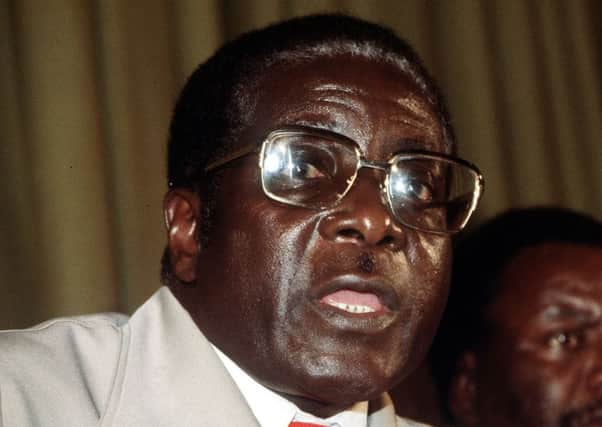The tragedy of wonderful Zimbabwe


So what was there to celebrate? Not a lot as it turns out.
First let me declare an interest. My wife and I lived in Bulawayo, in what was then Rhodesia, during 1976-1978.
And secondly, let me say up front, it can never be right for a minority to rule a majority.
Advertisement
Hide AdAdvertisement
Hide AdBut let me also say, just because you are part of a majority, it does not guarantee human rights to its citizens, nor does it assure competent governance.
So what is ‘The Old Man’s’ legacy, as they call him in Zimbabwe, following the heady optimism of 1980 when the “breadbasket of Africa” gained independence from Great Britain following a civil war that lasted for over 10 years?
Let me remind you of a few of the highlights.
Shortly after independence, and following several assassination attempts on Mugabe, the former head of the army, General Peter Walls, is exiled from Zimbabwe for life.
In 1982 the former capital city of Salisbury becomes Harare.
Advertisement
Hide AdAdvertisement
Hide AdEthnic divisions erupt in 1983. The government sends in the infamous North Korean-trained 5th Brigade (The Gukurahundi) to ‘pacify’ the Ndebele tribe and it is estimated that 20,000 civilians are killed during the process.
The voters’ roll is eliminated in 1986 and former ‘white’ seats are filled by government nominees.
The government restores corporal and capital punishment in 1991.
Government infrastructure, including basic health care, starts to collapse, and by 1997 it is estimated that more than 25 per cent of the population has been infected by HIV/AIDS.
Advertisement
Hide AdAdvertisement
Hide AdAn official opposition, The Movement for Democratic Change, is established in 1999 and Mugabe responds with arrests of its members.
In 2005 the government launches Operation Murambatsvina and 70,000 people, (UN estimate), are left without homes and jobs as dwellings and businesses are destroyed.
Also in 2005, Mugabe nationalises all land to justify the seizure of white-owned farms and ends the right of landowners to challenge government expropriation in the courts. As a result Zimbabwe moves from “breadbasket” to mass hunger, the importation of basic foodstuffs and the reliance on international aid.
Between 2000 and 2007 the economy shrinks by 50 per cent, formal unemployment rises to 80 per cent, and there is a lack of resources to deal with HIV/AIDS.
Advertisement
Hide AdAdvertisement
Hide AdThe tragedy continues to this day, and we have also seen outbreaks of dysentery and cholera resulting from unreliable drinking water.
If you want to know about what has happened in Zimbabwe then read the books Mukiwa, When a Crocodile Eats the Sun and The Fear by the author, journalist, and former human rights lawyer Peter Godwin who was born there.
Zimbabwe is a wonderful country with truly wonderful people and what has happened is a tragedy.
Someone once said that the arrival of the white man in Africa to change its culture and traditions was the worst thing that had ever happened and that leaving too early was the second worst thing. My own nomination for third place is not properly educating the people whose lives you are responsible for.
Advertisement
Hide AdAdvertisement
Hide AdThere are good people in Zimbabwe and I wish them a much better future than they appear to have now.
Tony Willis, who lives in Beadnell, has published one novel, Dark Flame, and is writing a second, Dead Reckoning. He is also writing his memoirs, which include his time working as a police detective in Yorkshire and living in Rhodesia and South Africa.